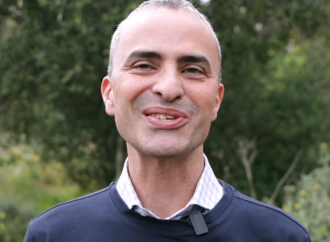
Understanding the Role of Alternate Histories in Shaping Our Perspective on the Past
History is often perceived as a fixed narrative—a linear sequence of events that define our collective identity. However, the study of alternate histories, also known as counterfactual history, challenges this notion by exploring “what might have been” if different decisions or circumstances had occurred. The University of Malta emphasizes how these explorations deepen our understanding of history by highlighting the role of chance, choice, and contingency in shaping human events.
By examining Malta‘s rich history through the lens of alternate histories, scholars demonstrate that even minor deviations could have led to significantly different outcomes. This approach not only broadens our historical perspective but also provides valuable insights into the complex web of factors that influence events across centuries.
The Value of Counterfactual History for Modern Understanding
Counterfactual history encourages us to think critically about established narratives. For example, consider major turning points such as the colonization of Malta or crucial political decisions. Reflecting on alternative scenarios—such as a different colonial power or a different leadership decision—can reveal how delicate the balance of history truly is.
In academic circles at the University of Malta, experts like Professor Emmanuel Buttigieg explore these alternative scenarios to better understand the forces that historically shaped Malta and the wider Mediterranean region. Such analysis emphasizes how randomness and human agency play pivotal roles, reminding us that history is less predetermined than it might seem.
Applying Alternate Histories to Understand Contemporary Malta
Malta’s history is marked by pivotal moments, such as its strategic position during World War II or its path to independence. By examining alternative outcomes—what if Malta had chosen a different political alliance or if certain battles had ended differently—we gain nuanced perspectives on current national identity and regional influence.
This method highlights the importance of decisions and chance in shaping not just Malta’s past but its present and future trajectory. Such insights are valuable for students, policymakers, and researchers interested in strategic planning and cultural understanding.
The Interplay of Chance, Choice, and Contingency in History
Counterfactual history underscores that history is a fragile web of interconnected events. Small deviations—missed opportunities, unexpected alliances, or unforeseen circumstances—could alter entire histories.
For instance, analyzing Malta’s resilience during wartime through alternate scenarios reveals how unpredictable factors influenced its survival. Recognizing this interplay can inform current decision-making processes, fostering a deeper appreciation for contingency in complex situations.
How the University of Malta Promotes Critical Engagement with Alternative Histories
The University encourages students and researchers to explore these counterfactuals through various courses, seminars, and research projects. This academic engagement aids in developing critical thinking skills and a better grasp of historical complexity.
For those interested in diving deeper into this field, exploring programs related to history and regional studies at the University of Malta offers opportunities to study how alternate histories illuminate real-world issues today.
Take the Next Step in Historical Inquiry
If you are intrigued by how “what might have been” influences our understanding of the past, consider exploring academic offerings from the University of Malta. Their programs foster critical analysis and provide tools to examine history from multiple perspectives.
Learn more about how studying history, especially through counterfactual approaches, can enrich your understanding of human society and the complexities of historical development.
Fill out the form to schedule a free consultation with an expert and explore programs that match your academic interests and career goals

